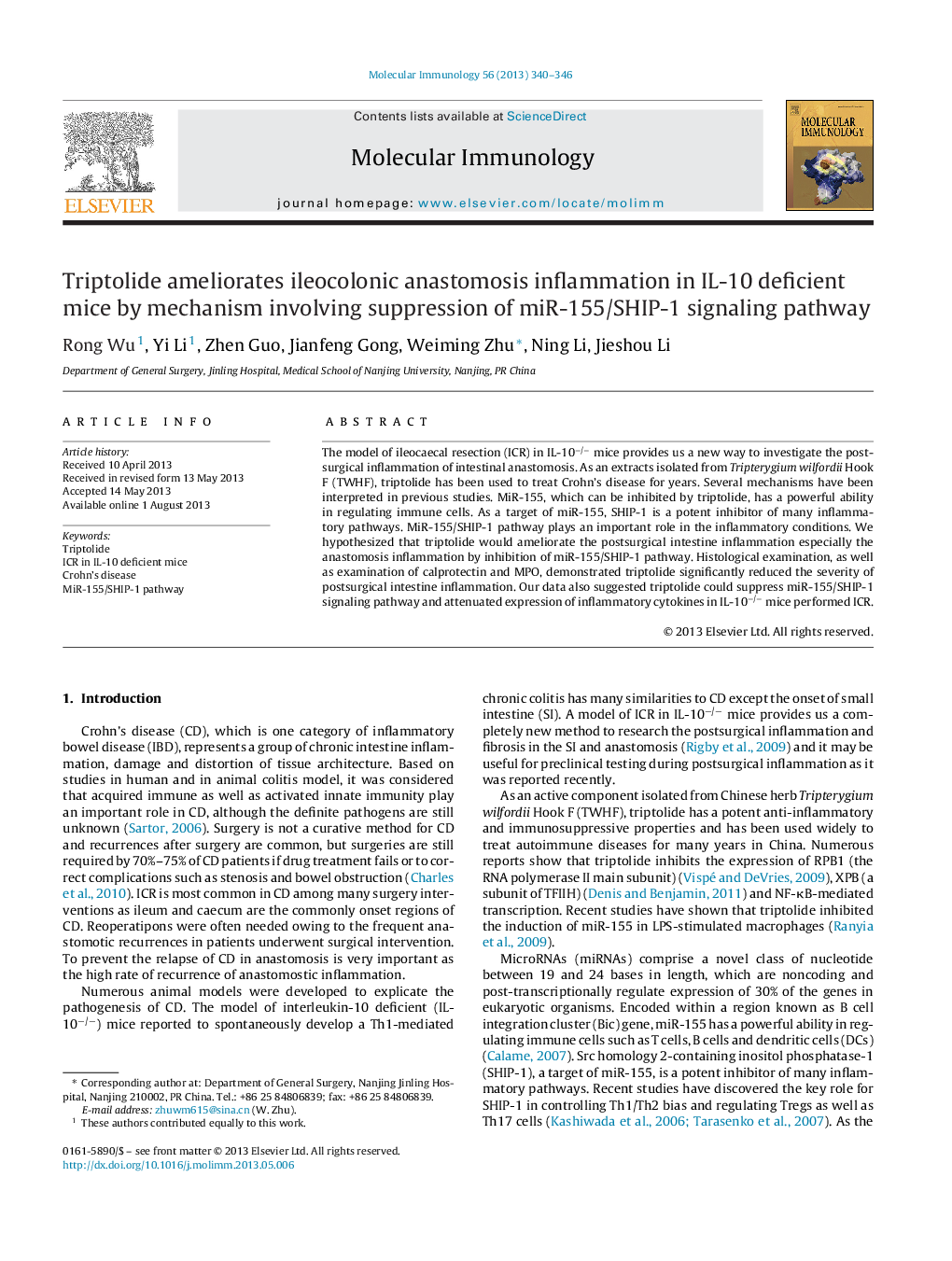| کد مقاله | کد نشریه | سال انتشار | مقاله انگلیسی | نسخه تمام متن |
|---|---|---|---|---|
| 5916924 | 1163765 | 2013 | 7 صفحه PDF | دانلود رایگان |

• We used a new model of ileocaecal resection (ICR) in IL-10−/− mice.
• We used triptolide to ameliorates ileocolonic anastomosis inflammation.
• MiR-155/SHIP-1 signaling pathway was inhibited by triptolide.
• Inflammatory cytokines were inhibited by triptolide.
The model of ileocaecal resection (ICR) in IL-10−/− mice provides us a new way to investigate the postsurgical inflammation of intestinal anastomosis. As an extracts isolated from Tripterygium wilfordii Hook F (TWHF), triptolide has been used to treat Crohn's disease for years. Several mechanisms have been interpreted in previous studies. MiR-155, which can be inhibited by triptolide, has a powerful ability in regulating immune cells. As a target of miR-155, SHIP-1 is a potent inhibitor of many inflammatory pathways. MiR-155/SHIP-1 pathway plays an important role in the inflammatory conditions. We hypothesized that triptolide would ameliorate the postsurgical intestine inflammation especially the anastomosis inflammation by inhibition of miR-155/SHIP-1 pathway. Histological examination, as well as examination of calprotectin and MPO, demonstrated triptolide significantly reduced the severity of postsurgical intestine inflammation. Our data also suggested triptolide could suppress miR-155/SHIP-1 signaling pathway and attenuated expression of inflammatory cytokines in IL-10−/− mice performed ICR.
Journal: Molecular Immunology - Volume 56, Issue 4, 31 December 2013, Pages 340–346